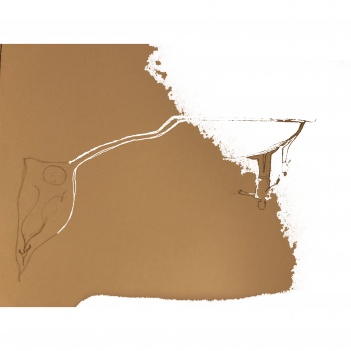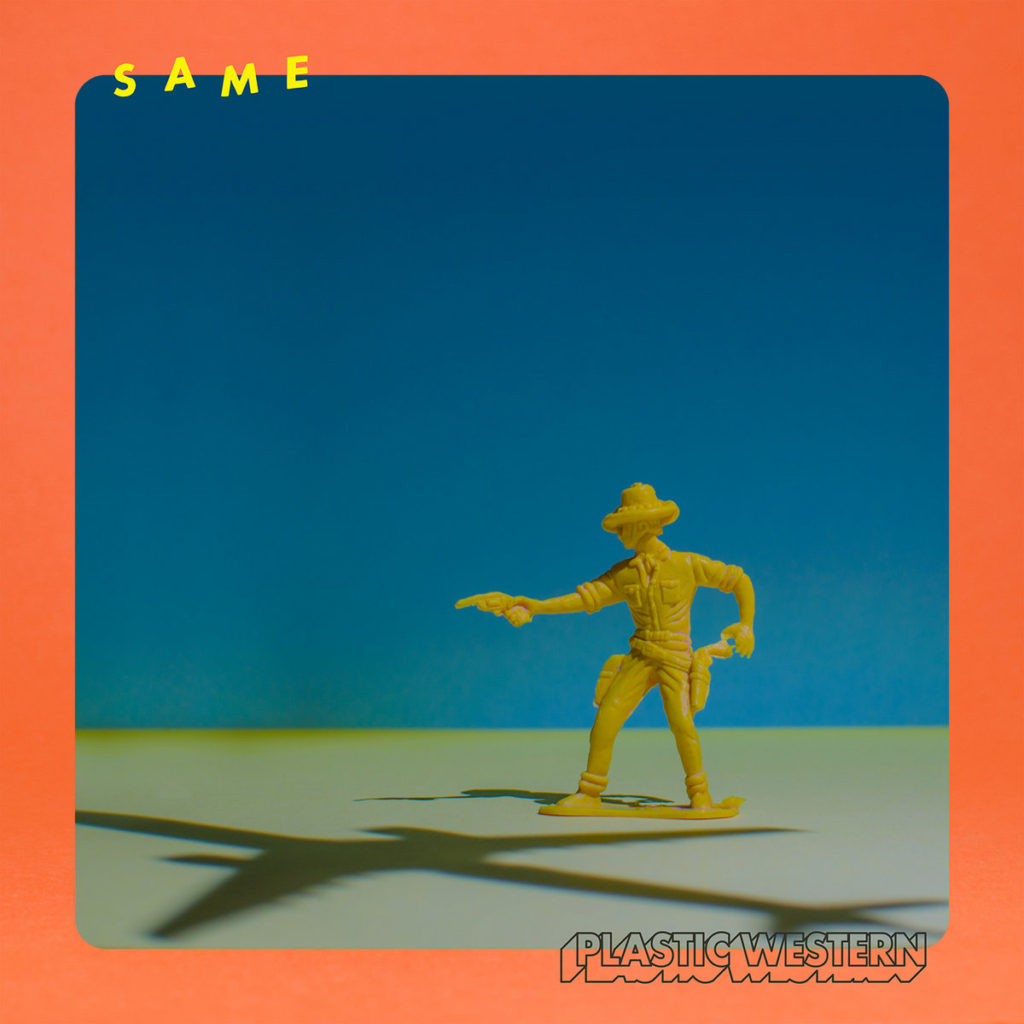Daniel Munkus is a composer/multi-instrumentalist, Peekskill, N.Y.-based recording engineer and Brooklyn College alumnus who is one-third of the electronic looping ensemble Old Robes. This week, he is making his feature, full-length debut with The Edge of the High Trace, an LP he calls his “first foray into trying to put together a fully realized instrumental album that is not associated with an external project, i.e. a theater production, film, or other similar medium.” The new record, recorded in semi-solitude in the midst of the ever-evolving COVID-19 pandemic, also circles around Munkus coming to terms with his father’s unexpected death in 2016 – and this is important to note because it seemingly pervades Munkus’ decision-making about the course of the LP. The record is, by turns, magical in a broke-down kind of way and rather expansive; it also is as far away as one could imagine from self-promotional or self-referential. This is a record that quietly does its thing and leaves the cards out for the listener to make the calls – no grand-standing, no posturing, not even much in the way of direction. It can be a minor work, yes, and also somewhat incomplete but that adds to the mystery of the thing and Munkus, himself no stranger to performance, seems to know this well.
The first piece, the 10-minute-long title track, is either an homage to Godspeed You! Black Emperor or a bold attempt to crib notes from them. Guest violinist Heather Sommerlad – incidentally, another third of Old Robes – didn’t get to hear Munkus’ skeleton for the song before stepping in to record her parts. And this, expectedly, keeps everything rather spontaneous, fluid and on its toes as Munkus, who appears on drone guitar and occasional drums, and Sommerlad build to crescendos over wails of strings and guitar. It doesn’t shake the earth – we’ll leave that to GY!BE – but the track, for all its meandering, is surprisingly effective in a tension-building/tension-releasing mode of being. And, if you dig deep enough, listeners can spot the parallels between what Munkus is crafting and his grieving process, the steps in the letting go, as it were.
Other pieces on the record seem less developed, not more driven by spontaneity but less processed before initiation – there’s less second-guessing before the trigger is squeezed. “The End of the High Trace” occasionally features the same amp-buzzed guitar as the opener (continuity!) but, here, keyboards add a level of the synthetic that’s a little puzzling for a post-rock vehicle. Five minutes into the seven-minute-long song, the guitar and keyboard do a dizzying, even drunken little tango together that, again, is rather effective. But that, somewhat inexplicably, segues into a piano-led requiem of sorts (the improvised “Eighty-four Today” suite) that is very touching and very human – but, yeah, oddly out of sync with what surrounds it. “Wooden Nickels,” which follows that, is aesthetically adventurous to a fault but, again, twists the record’s narratives into shapes you don’t expect. In short: this thing, at points, can feel tough to follow.
Guest guitarist Tommy White adds some great claptrap electric guitar to the closing track, “A Once Lonely Man” but, by then, it’s really anyone’s guess as to what tricks Munkus has up his sleeve. You come to expect the dropping of the kitchen sink. The pieces are so removed from Godspeed You! Black Emperor worship or Basinski-style concrete constructions that listeners will question Munkus’ intentions – and that’s a shame, because the material’s ambitions soar above the structure of the disc.
“I wanted to make something that stood on its own as a pleasant but hopefully meaningful and deep listen,” Munkus wrote about the LP. Meaningful? Maybe. Deep? Sure. But pleasant? Munkus is grieving a death while advancing life – his newly born daughter figures into a dream about the title of the LP – and that’s not a space for clean, linear storytelling. He’s risen to the surface with something grimy and human and real – there’s good reason to celebrate that much. But the LP is also a little messy around the edges. That might work for the mourning process but feels less insightful or illuminating when translated into a feature debut. — Justin Vellucci, Spectrum Culture, Nov. 23, 2021
-30-




